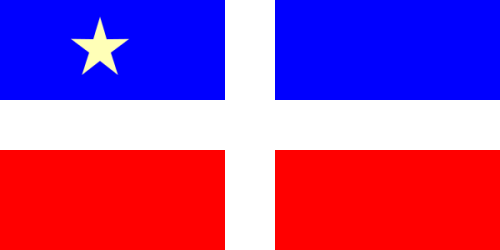
______________________________________________________
Official Name: The Republic of Libre Borinquen
______________________________________________________
Common Name: Libre Borinquen
____________________________________________________
Demonym: Borinquen
______________________________________________________
Motto: Libre o Muerto
Latin: Free or Dead
______________________________________________________
Anthem: La Libertad
______________________________________________________
Capital: San Juan
Largest City: Mayaguez
______________________________________________________
Official Language: Spanish
Other spoken languages: English.
______________________________________________________
Official Religion: Christian Catholic
______________________________________________________
Ethnic groups: (2010 Census)
-European:13%
-Taino:13%
-African:25%
-Mixed: 49%
______________________________________________________
Government Type: Democratic
______________________________________________________
- President: Alejandro Ferrer
- Vice President: Javier Jugo
- President of the National Assembly: Filiberto Sanches
______________________________________________________
Judicial: Supreme Court of Libre Borinquen.
______________________________________________________
Discovery: September 12, 1889.
Settlement: October 4th, 1889.
Current Government: May 21st, 1940.
______________________________________________________
Area:
- Total: 9,104 km2, 3,515 sq mi
- Water (%): 1.6
______________________________________________________
Population:
2011 Census: 3,725,789
Density: 1,113/sq mile
______________________________________________________
GDP (PPP): 2010 Estimate
Total: $15,203,555,854,376.10
Per Capita: $26,033.49
Exchnage rate:1 peso = $1.2692
______________________________________________________
National Holidays:
Independence Day: January 5
Veteran’s Day [15th September]
______________________________________________________
Gini: (2010) 53.5
______________________________________________________
HDI: (2010) .894 (High)
______________________________________________________
Currency: El Peso
______________________________________________________
Date Format: dd / mm / yyyy (CE)
______________________________________________________
ISO 3166 code: LB
______________________________________________________
Drives on the: Right
______________________________________________________
Internet TLD: .lb
______________________________________________________
Calling Code: 777

